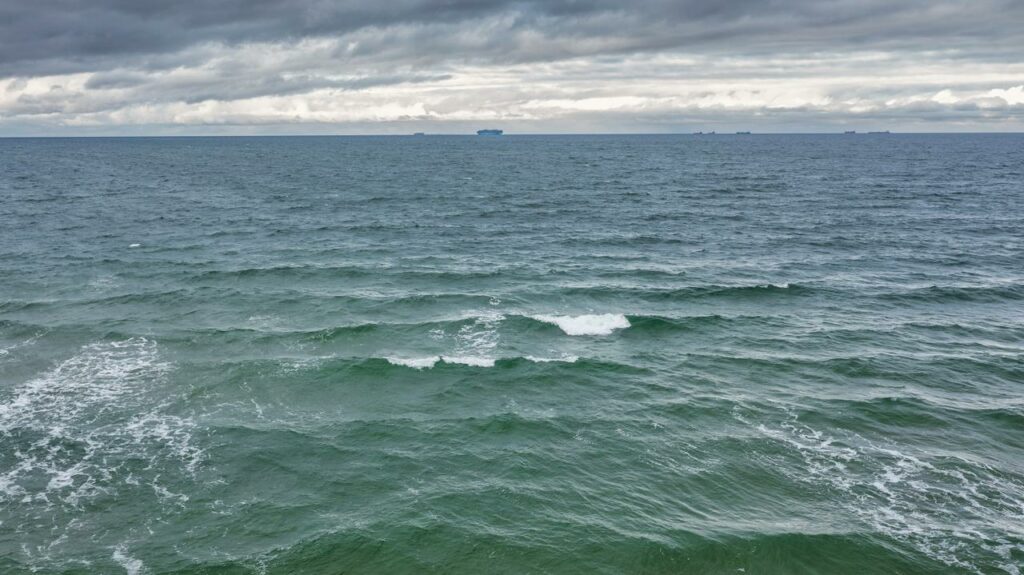European governments accused Russia of escalating hybrid attacks on Ukraine’s Western allies on Tuesday (November 19), as Baltic nations investigated whether the cutting of two fibre-optic telecommunication cables in the Baltic Sea was sabotage.
“Moscow’s escalating hybrid activities against NATO and EU countries are also unprecedented in their variety and scale, creating significant security risks,” the statement signed by the foreign ministers of France, Germany, Italy, Poland and Britain said.
Europe needed to “think and act big” to boost its security, the statement continued.
The strongly worded declaration came as European countries probed the complete severing this week of the Baltic cables, one linking Finland and Germany, the other connecting Sweden to Lithuania, recalling previous incidents in the busy waterway.
Two European sources said the statement was not a direct response to the cable cuts.
One cable went out of service on Sunday morning, the other less than 24 hours later on Monday.
European officials have not directly accused Russia of destroying the cables. But Germany, Poland and others said it was likely an act of sabotage, while Lithuania’s armed forces boosted surveillance of its waters in response.
“If Russia does not stop committing acts of sabotage in Europe, Warsaw will close the rest of its consulates in Poland,” Polish Foreign Minister Radosław Sikorski said on Tuesday after several European foreign ministers met in the Polish capital.
Speaking at the same event, German Foreign Minister Annalena Baerbock cited the incident and other recent events when speaking about what she called “hybrid intimidation attempts” by the Kremlin, adding “these can’t all be coincidences”.
German Defence Minister Boris Pistorius struck the same chord as he met with EU colleagues in Brussels: “No one believes that these cables were cut accidentally.”
“We also have to assume, without knowing it yet, that it is sabotage,” Pistorius added.
Russia has repeatedly denied sabotaging European infrastructure and says that the claims are made up in an attempt to damage Russian interests as part of an information war waged by the West.
Russian officials also say that they note the investigation into the Nord Stream gas pipeline blasts in 2022 has produced no results.
Jean-Noel Barrot, Antonio Tajani, Radosław Sikorski, Annalena Baerbock and Kaja Kallas met in Warsaw on Tuesday, Nov. 19PAP/Marcin Obara
Tensions
In the most prominent Baltic sabotage case, the Nord Stream gas pipeline was destroyed in September 2022, seven months after Russia launched its full-scale invasion of Ukraine, hastening Europe’s switch to other energy suppliers.
No one has taken responsibility for those blasts. While some Western officials initially blamed Moscow – an interpretation dismissed as “idiotic” by Russian President Vladimir Putin – U.S. and German media have reported that pro-Ukrainian actors may have played a role.
Regional NATO members are jointly assessing events surrounding the latest cable cuts, a spokesperson for the Lithuanian armed forces said.
Lithuania’s Prosecutor General’s Office was gathering information to determine if a formal investigation should be launched, a spokesperson said.
Swedish police has launched a sabotage investigation into damage to two telecom cables in the Baltic Sea, they said in a statement on Tuesday.
The Swedish armed forces and coast guard have picked up ship movements that correspond with the interruption of two telecoms cables in the Baltic Sea, Sweden’s Minister for Civil Defence Carl-Oskar Bohlin told broadcaster TV4 on Tuesday.
Finland’s National Bureau of Investigation said it had also launched investigations into the broken subsea cable. The bureau later informed that Sweden would lead the investigation into the matter.
The companies that own the two cables both said it was not yet clear what had caused the outages.
“It’s not a partial damage, it’s full damage,” said a spokesperson for Arelion, owner and operator of the cable linking Lithuania and Sweden. The company later said it had filed a police report.
Cinia, owner of the cable linking Finland and Germany, said it was not possible to say what might have caused the breach until repairs had started. The company has said repairs of this nature typically take 5-15 days.
Dutch Defence Minister Ruben Brekelmans said he had no specific information about who was to blame, but said: “We see increasing activity of especially Russia on our seas, aimed at espionage and possibly even sabotage of our vital infrastructure.”
The European Union’s top diplomat said on Tuesday it was not possible to attribute the cutting of two fibre-optic telecommunication cables in the Baltic Sea to anyone.
“It would be irresponsible from my side to attribute this, let’s say, incident or accident or whatever you want to call it, to anyone. It would by putting wood to the fire. That is not my intention,” Josep Borrell said during a press conference in Brussels.
TVN24 News in English, Reuters, PAP
Źródło zdjęcia głównego: Shutterstock
Source link : http://www.bing.com/news/apiclick.aspx?ref=FexRss&aid=&tid=673ccfd703bf4fffa6b1d18d75cce9f9&url=https%3A%2F%2Ftvn24.pl%2Ftvn24-news-in-english%2Feuropean-nations-denounce-russian-hybrid-attacks-cable-cut-probes-launched-st8186620&c=3223418932227283423&mkt=de-de
Author :
Publish date : 2024-11-19 09:24:00
Copyright for syndicated content belongs to the linked Source.
